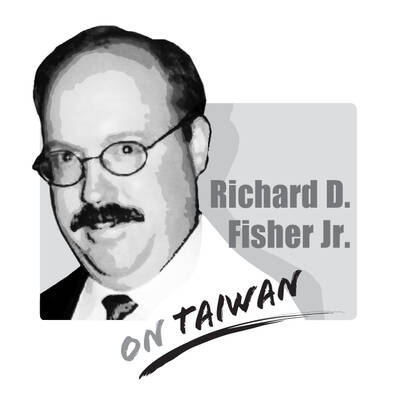The revision of the high-school curriculum has sparked widespread discussion. There are many voices on the Internet opposing the inclusion of Taiwanese cultural content in the curriculum. Certainly, learning the literature, culture or language of English-speaking countries is very important.
Based on my experience, being able to fluently introduce one’s own culture in English not only helps in building friendships, but also in gaining respect from international friends, which is an extremely valuable asset.
I remember 20 years ago when I was studying abroad, I lived in a student dormitory and shared a kitchen with classmates from various countries. Initially, I tried to learn from a senior student from Taiwan and casually made some Taiwanese dishes, such as braised pork rice and braised chicken legs. However, I must admit, the results were barely passable.
What surprised me was that the foreign students, although young and mostly in their early twenties, could cook really well. Even the British showed a certain prowess in preparing canned food. This made me reflect on my limited understanding of my own country’s food.
Fortunately, my roommates were more than willing to share their dinners with me. Every night in the dormitory, you could see students from different countries showcasing their culinary skills in the kitchen and exchanging dishes. I too got to taste cuisines from France, Italy, Japan, India and Sri Lanka, and even Malawi and the Congo.
Whenever a new roommate arrived at our dormitory, I would establish a good relationship with them, and after building friendships, everyone was happy to share their dishes. Everyone’s favorite moments were undoubtedly those spent in the kitchen, cooking delicious meals, while chatting and savoring these carefully prepared dishes with good friends.
After tasting dishes from various countries, my roommates asked me what delicious dishes Taiwan had to offer. They wanted me to make something for them to try. So, I haphazardly made a scallion omelet. My roommates said that every country has this dish, and it could not be considered uniquely Taiwanese. To show them the uniqueness of Taiwanese cuisine, I sliced a plate of tomatoes and added some soy sauce and sugar. However, they did not believe such a combination could be delicious and thought I was joking.
These experiences made me think about why I knew so little about my hometown’s food. Although I grew up in Taiwan, I knew very little about Taiwanese food culture. I realized that to truly understand a place’s cuisine, it is not just about tasting local dishes, but also about understanding the origin of the ingredients, traditional cooking methods and locals’ attitudes and values toward food.
Like many students who have lived abroad, I started to miss the food from my own country when I was away from home. Suddenly, I realized the importance of understanding my culture. After returning to Taiwan, I began to learn about its traditional dishes, local specialties and contemporary culinary styles.
Each dish carries a rich cultural background and story. I believe it is a treasure worth sharing with readers around the world, and through organizing and translating these food stories, I hope to introduce Taiwan’s unique food culture and dishes to others.
Like many diligent students, we have learned much about Western knowledge and culture, but when foreigners asked about our own culture, such as tourist spots, food or even feng shui, I often found myself at a loss for words. So, when facing foreign friends’ curiosity and questions about Taiwan, I could only answer: “I’m not so sure.” This led to them asking me whether I was actually Taiwanese.
In international settings, people from each country take pride in their own culture. Therefore, in addition to learning about Western culture, we could also spend some time learning how to introduce our own country and culture in English.
In meeting with international friends, we could speak more confidently, displaying our pride in being Taiwanese and engaging in citizen diplomacy.
Huang Yu-hsiu is an assistant professor in the Applied English Department of Southern Taiwan University of Science and Technology and the author of The Real Stories Behind Taiwanese Food and Drink.

The bird flu outbreak at US dairy farms keeps finding alarming new ways to surprise scientists. Last week, the US Department of Agriculture (USDA) confirmed that H5N1 is spreading not just from birds to herds, but among cows. Meanwhile, media reports say that an unknown number of cows are asymptomatic. Although the risk to humans is still low, it is clear that far more work needs to be done to get a handle on the reach of the virus and how it is being transmitted. That would require the USDA and the Centers for Disease Control and Prevention (CDC) to get

For the incoming Administration of President-elect William Lai (賴清德), successfully deterring a Chinese Communist Party (CCP) attack or invasion of democratic Taiwan over his four-year term would be a clear victory. But it could also be a curse, because during those four years the CCP’s People’s Liberation Army (PLA) will grow far stronger. As such, increased vigilance in Washington and Taipei will be needed to ensure that already multiplying CCP threat trends don’t overwhelm Taiwan, the United States, and their democratic allies. One CCP attempt to overwhelm was announced on April 19, 2024, namely that the PLA had erred in combining major missions
On April 11, Japanese Prime Minister Fumio Kishida delivered a speech at a joint meeting of the US Congress in Washington, in which he said that “China’s current external stance and military actions present an unprecedented and the greatest strategic challenge … to the peace and stability of the international community.” Kishida emphasized Japan’s role as “the US’ closest ally.” “The international order that the US worked for generations to build is facing new challenges,” Kishida said. “I understand it is a heavy burden to carry such hopes on your shoulders,” he said. “Japan is already standing shoulder to shoulder
Former president Chiang Ching-kuo (蔣經國) used to push for reforms to protect Taiwan by adopting the “three noes” policy as well as “Taiwanization.” Later, then-president Lee Teng-hui (李登輝) wished to save the Chinese Nationalist Party (KMT) by pushing for the party’s “localization,” hoping to compete with homegrown political parties as a pro-Taiwan KMT. However, the present-day members of the KMT do not know what they are talking about, and do not heed the two former presidents’ words, so the party has suffered a third consecutive defeat in the January presidential election. Soon after gaining power with the help of the KMT’s